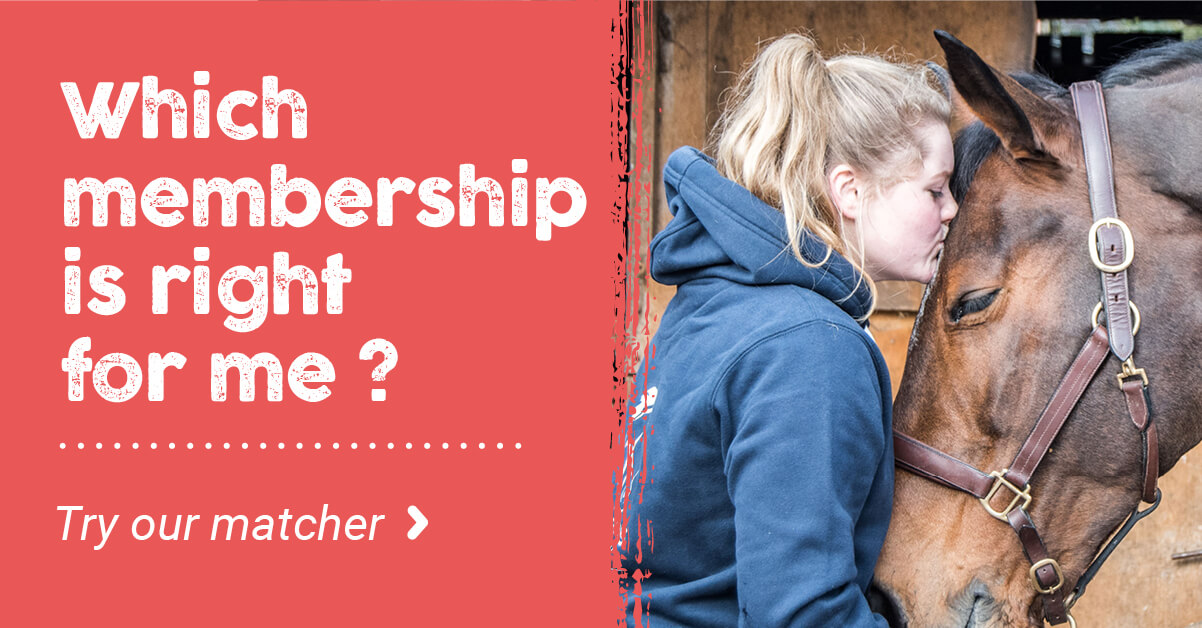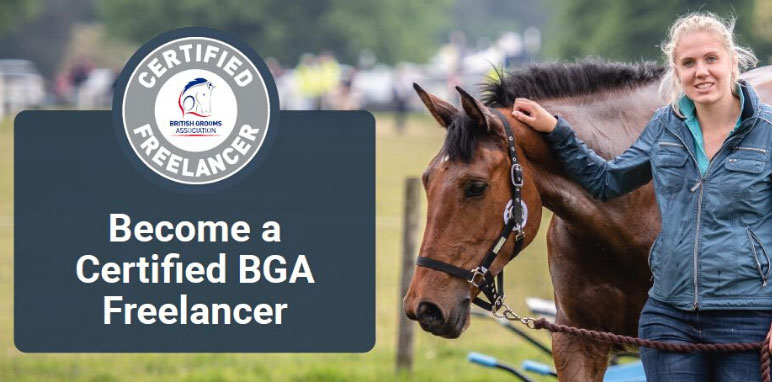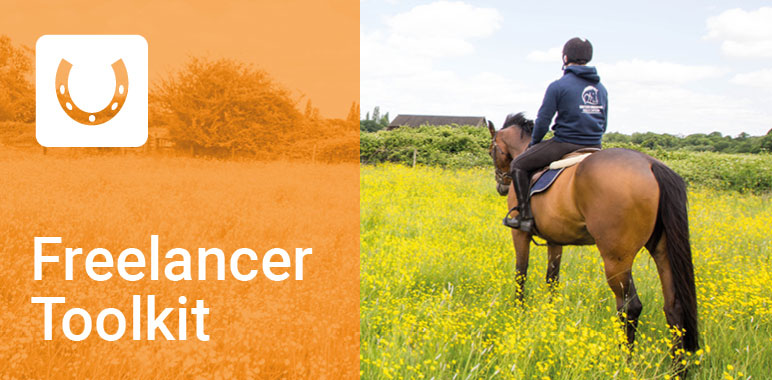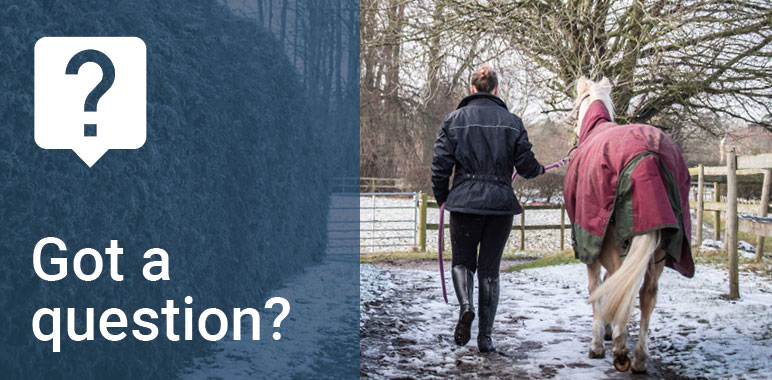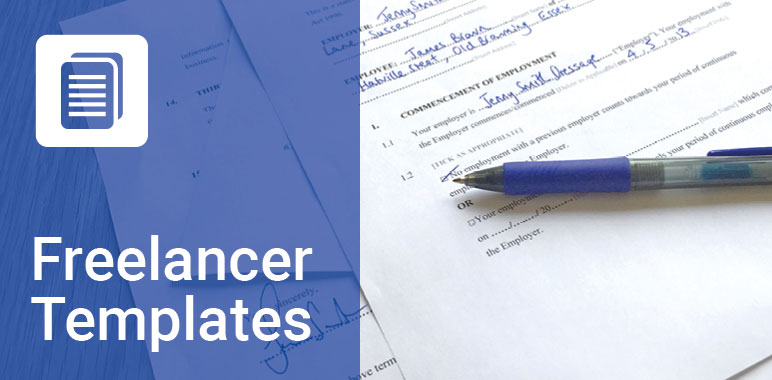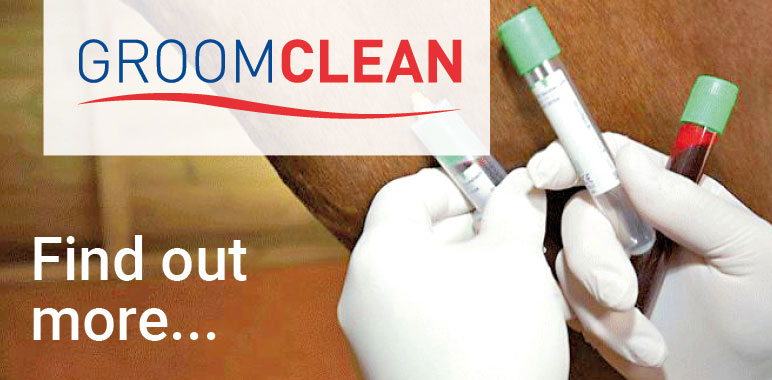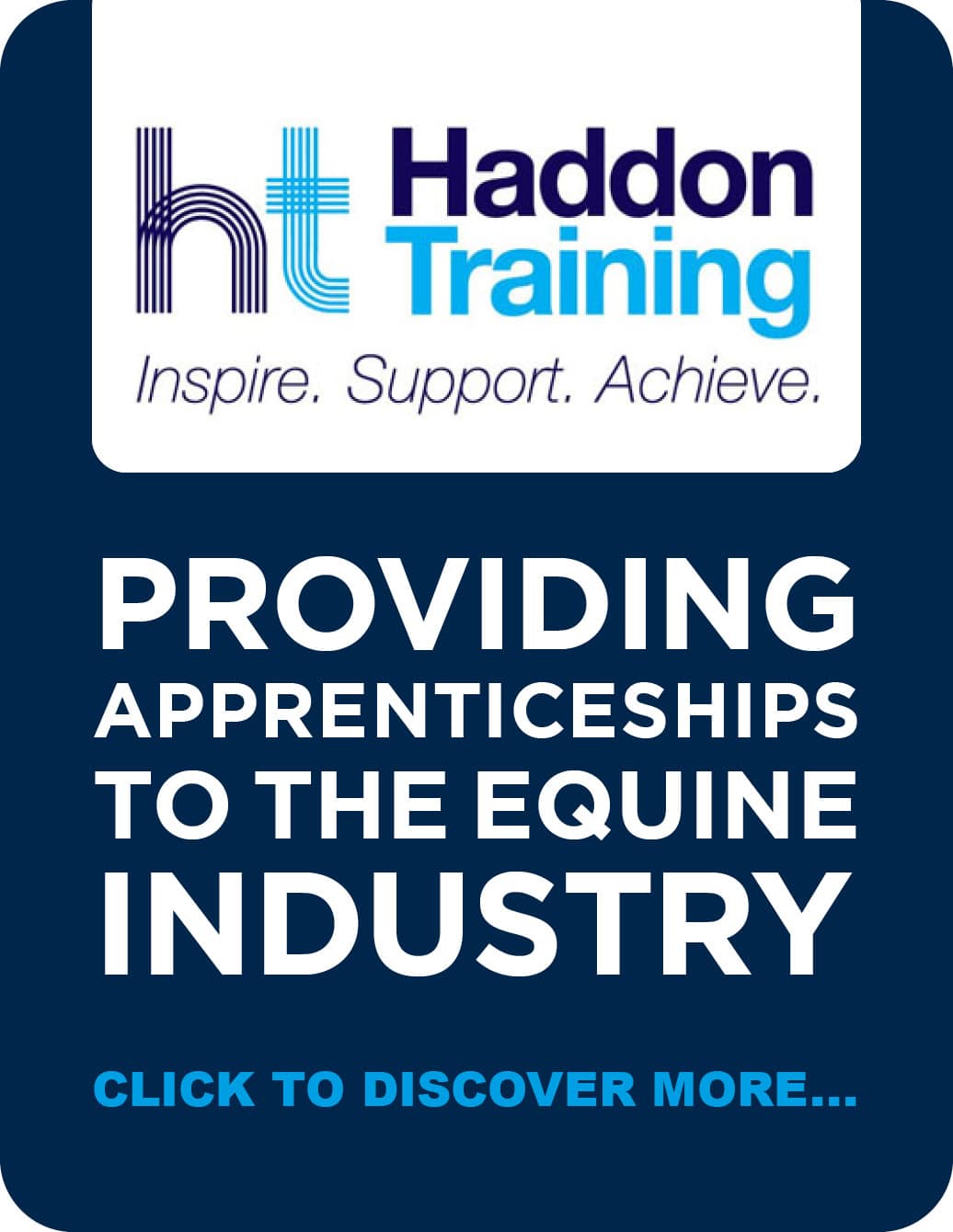Equine Traineeships 
Do you have little or no experience working with horses?
Traineeships are a part of a Government initiative to help school leavers and young people with little or no experience get their foot in the door and start developing the right skills.
What is a Traineeship?
A traineeship is a skills development programme that includes a high-quality work placement of at least 70 hours.
It can last from 6 weeks up to 5 months.
A traineeship is a training programme and isn’t a job. Employers are not required to pay you for the work placement, but they can support you with expenses such as transport and meals.
You’ll receive training from professionals and learn the basic foundations of horse care. They’ll teach you how to handle horses on a commercial yard as well as other key skills and at the same time increase your confidence.
Alongside the practical experience, you will also be on the path to achieve an equine qualification to develop your CV and make yourself more attractive to employers.
| |
- You’ll complete a work placement as well as work preparation which will be delivered by your Trainer-Coach.
- You’ll receive Maths and English tutoring (if you need it).
- You’ll secure an interview for an apprenticeship and a reference to put on your CV upon successful completion.
- Your Trainer-Coach will also work with you to ensure a positive outcome when you finish the programme; be it progressing onto an apprenticeship, moving onto further education or gaining employment.
|
Am i eligible?
To be eligible you must be:
- Be 16-24 years old, or 25 with an EHC plan
- Be qualified below or at level 3 (not above)
- Have little or no work experience but are motivated to work
- Be eligible to work in England
- Have a passion for horses
If you don’t fit the above criteria or you are unsure, you can contact Haddon Training who can talk you through this in more detail. It might even mean that you are ready to do an Apprenticeship and be employed.
FINDING AN Traineeship position
Employers are often keen to take on trainees because it allows them to see how a learner can handle general duties on their yard before considering them for an apprenticeship.
COMMONLY ASKED QUESTIONS
How long does a Traineeship take?
This will vary based on your experience but will vary from 6 - 20 weeks.
My boss says I am a Trainee, but I am not sure?
You are only on a Traineeship if you are engaged with a training provider or college.
If your employer tells you that you are a 'trainee', but you are not formally signed up, then you are not on a Traineeship and thus must be paid at least the National Minimum Wage for your age for every hour you work.
Am I paid?
You aren’t paid when you are on a Traineeship. You might be given expenses and/or lunch by your employer.
You may also be eligible for financial support including:
- travel and meal costs
- childcare costs
- disability support
- from their Jobcentre, if they are receiving welfare benefits
Am I an employee?
No; a traineeship is a formal training programme and isn’t an employed job.
Do I have a contract of employment?
No. But you must be registered with a training provider.
Are there a maximum number of hours that I can be expected to work?
Your Training Provider will work with you and the employer to formalise a plan of working hours that will be monitored and recorded each week as you progress on the programme.
Your hours for the traineeship will be no more than 35 hours per week.
You should take a note of the hours that you work on a daily basis.
Charge for my accommodation or horses livery
You can be charged for accommodation costs and this should be made clear in writing prior to starting the Traineeship.
Your employer should invoice you for your horse's livery cost if you take it with you. This should clearly be agreed upon between you and your employer in writing.
CAN I SAY THAT I DO NOT FEEL SAFE IN MY ACCOMMODATION?
Yes, if you have concerns about your health and safety then you should raise this with your employer.
Your employer must also be aware that for learners under 18, or under 25 with an Education, Health and Care (EHC) plan, that will be sharing accommodation facilities with adults (people aged 18 years old or over), they need to ensure DBS checks (a record of a person’s criminal convictions and cautions carried out by the Disclosure and Barring Service) are carried out on the other occupants within the accommodation before you begin to live on-site.
Learners that are under 18 or under 25 with an EHC plan should always have their own bedroom with door lock.
Haddon Training also provide a 24 hour safeguarding phone line for their Apprentices.


